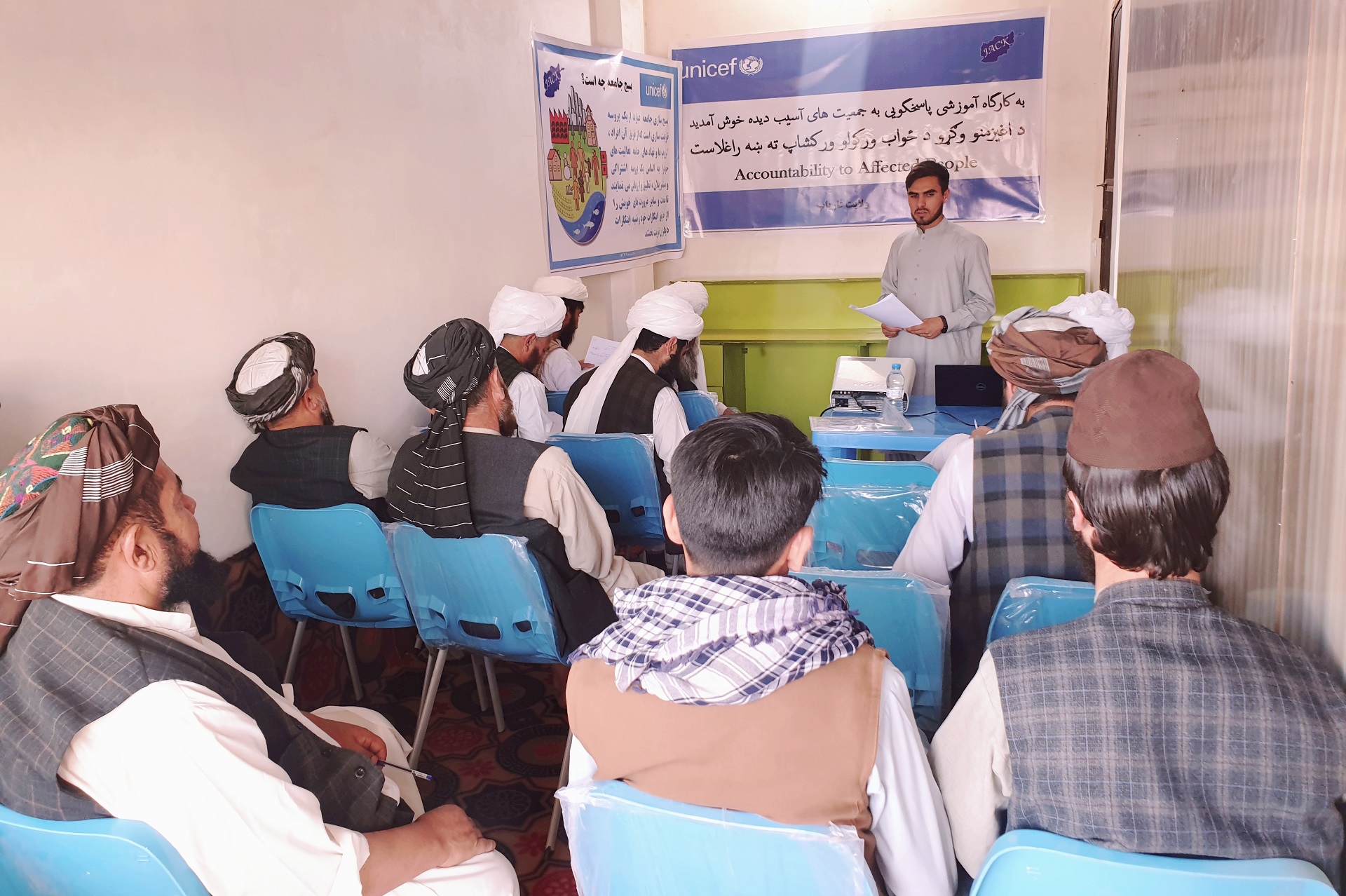Community people benefited from community dialogues sessions and messaging to address barriers and bottlenecks related to health, nutrition, WASH, child protection, education, and disease outbreaks. Thus, community Engagement is a two-way dialogue between crisis-affected communities, humanitarian organizations and, where possible, within and between communities. It should enable affected people to meet their different needs, address their vulnerabilities and build on their pre -existing capacities.
Engaging with affected communities ensures that accurate and timely information is shared with them, and that their feedback and participation are integral parts of humanitarian response. This is based on the principle that communities’ meaningful participation in humanitarian processes is essential and that information is a critical form of assistance.
In the case of self-help information, such as how to treat diseases at home, Community Engagement ensures the effective delivery of information as a form of life-saving assistance. Without it, disaster survivors cannot be empowered to make the best decisions for themselves and their communities.
Therefore, engagement sessions have conducted in four districts of Faryab province in each session social Mobilizers introduce UNICEF, JACK organization and objectives of the SBC program then covey information and lifesaving messages to participants about Health, wash, child protection and awareness of Congo virus and its disaster. From the start of activities about 10000 people have engage on SBC program and receive the important information and about 2000 feedback collected through social mobilizers and CEFCs.
To ensure that humanitarian needs are addressed effectively, Community Engagement should be continuous and happen at every stage of the Humanitarian Programmed Cycle.

